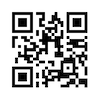Digital Creatives and the Rethinking of Religious Authority - Chapter 4
Dr. Campbell, director of the Network, explores the interactions between digital innovators and religious organization and institutions, in her latest book: Digital Creatives and the Rethinking of Religious Authority (Routledge 2020). Here we provide a glimpse into her insights shared in the book on how digital creatives with religious motivations and digital media experts working the churches are challenging traditional notions of what it means to have religious authority in a digital age. The following blog post is an edited excerpt from a chapter appearing in Digital Creatives and the Rethinking of Religious Authority give our readers a unique insights into her arguments and findings shared in the book.
Chapter 4: Digital Entrepreneurs
Throughout the course of this research, I noted that when people use the phrase “digital creative,” they often picture individuals who builds digital tools like a web- site or computer software. However, in the world of advertising and marketing, the term digital creative can also refer to those who create digital content. Through my study of individuals involved in digitally creative practices associated with religious communities and institutions, I found digital creatives include both. Religious digital creatives (RDCs) can be tech designers who create websites or platforms for innovative forms of ministry, or individuals who primarily engage with established media platforms, producing unique content focused on specific religious topics meant to educate, inspire or challenge their faith community.
Digital entrepreneurs are often professional media workers who use their abilities to serve the mission of their faith community or affiliated church. We typically think of them as having a high level of technical design or coding expertise, and they see these skills as gifts they can and should use to help the work of the Christian church. This may include designing religious mobile apps, software or websites, or even running online discussion forums or social media sites. However, there are other digital entrepreneurs whose expertise lies in digital-media lit- eracy and proficiency. Rather than focusing on technology tools, their strengths lie in their ability to envision imaginative digital content or strategies that can be implemented to serve their faith community’s goals. Their digital-media expertise enables them to rise as external experts seeking to offer guidance on how best to adapt to digital-media culture.
Both types of digital entrepreneurs, tool designer and content creator, face a unique challenge. While they desire to serve the church, they are employed out- side the religious organization they seek to assist. This gives them a unique level of freedom, as their digital work is driven by their personal vision and enthusiasm, allowing them to think outside traditional boundaries and practices set by religious institutions. However, their efforts can also be viewed with suspicion, or at least a lack of understanding by those inside the official structures. In this way, digital entrepreneurs may be seen as competitors by the very groups they seek to serve.
In this chapter we explore three different types of digital entrepreneurs: (1) techies for God, (2) theoblogians and (3) internet evangelists. Techies for God are digital-media innovators who use their design expertise to create websites, software or online resources to fulfill a particular religious mission. Theoblogians are individuals who start blogging, often focused on a particular religious topic or theological perspective. Internet evangelists are similar to techies for God in that they feel called to develop websites and applications to facilitate the spread of the Christian gospel to those outside the church. However, unlike techies for God, their reason for using technology is singular—to develop tools for evangelization.
Each of these different expressions of digital entrepreneurs is known for their online work and creativity and their ability to turn this digital work into a form of ministry and expression of their religious commitment. Many have earned reputations as innovators within certain Christian networks online and sometimes even offline, not only for their technical skills, but also for their understanding of how internet technologies and digital culture are shaping society and the church. In the following sections, we explore these visionaries and how they use media for religious influence.
Excerpt taken from Campbell, H.A. (2020). Digital Creatives and the Rethinking of Religious Authority. Routledge. This book can be purchased through the publisher at: https://www.routledge.com/Digital-Creatives-and-the-Rethinking-of-Religi...





